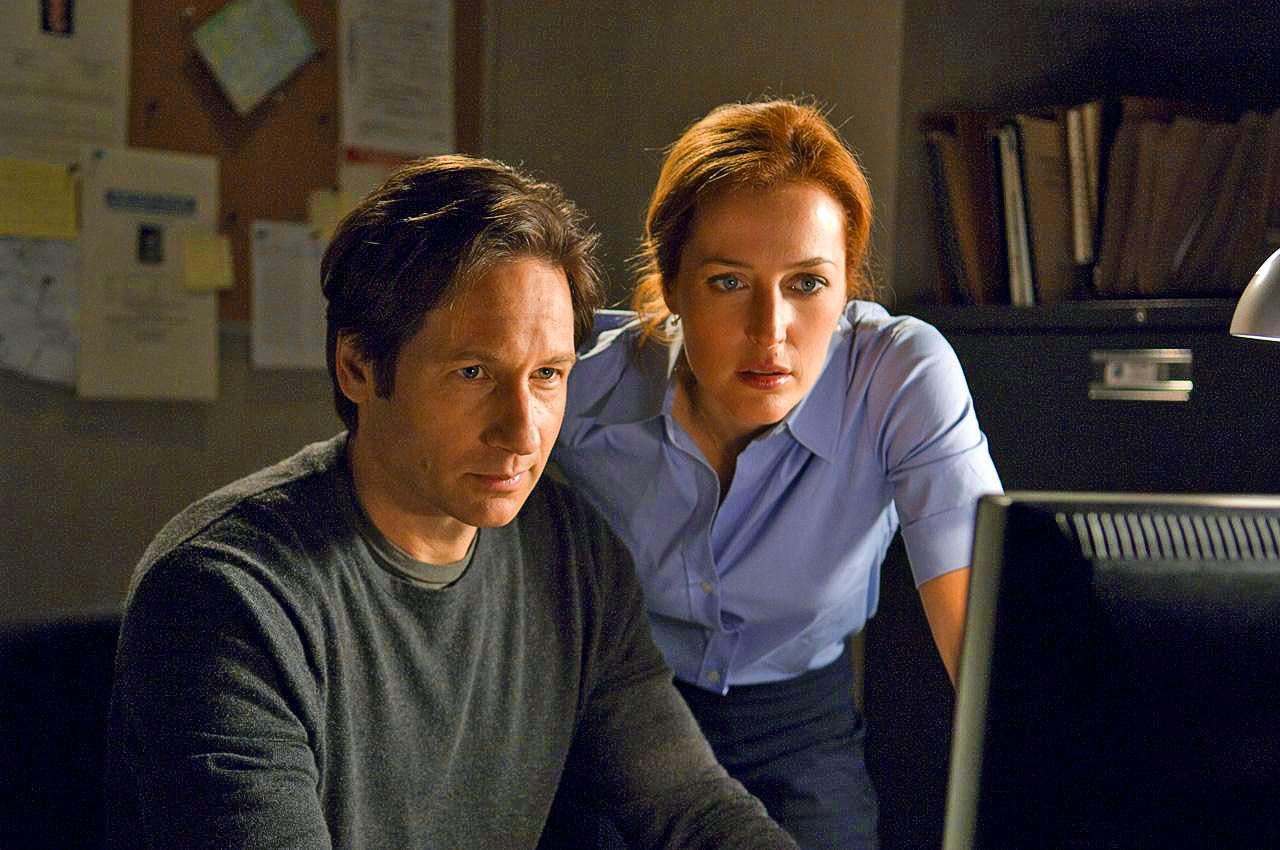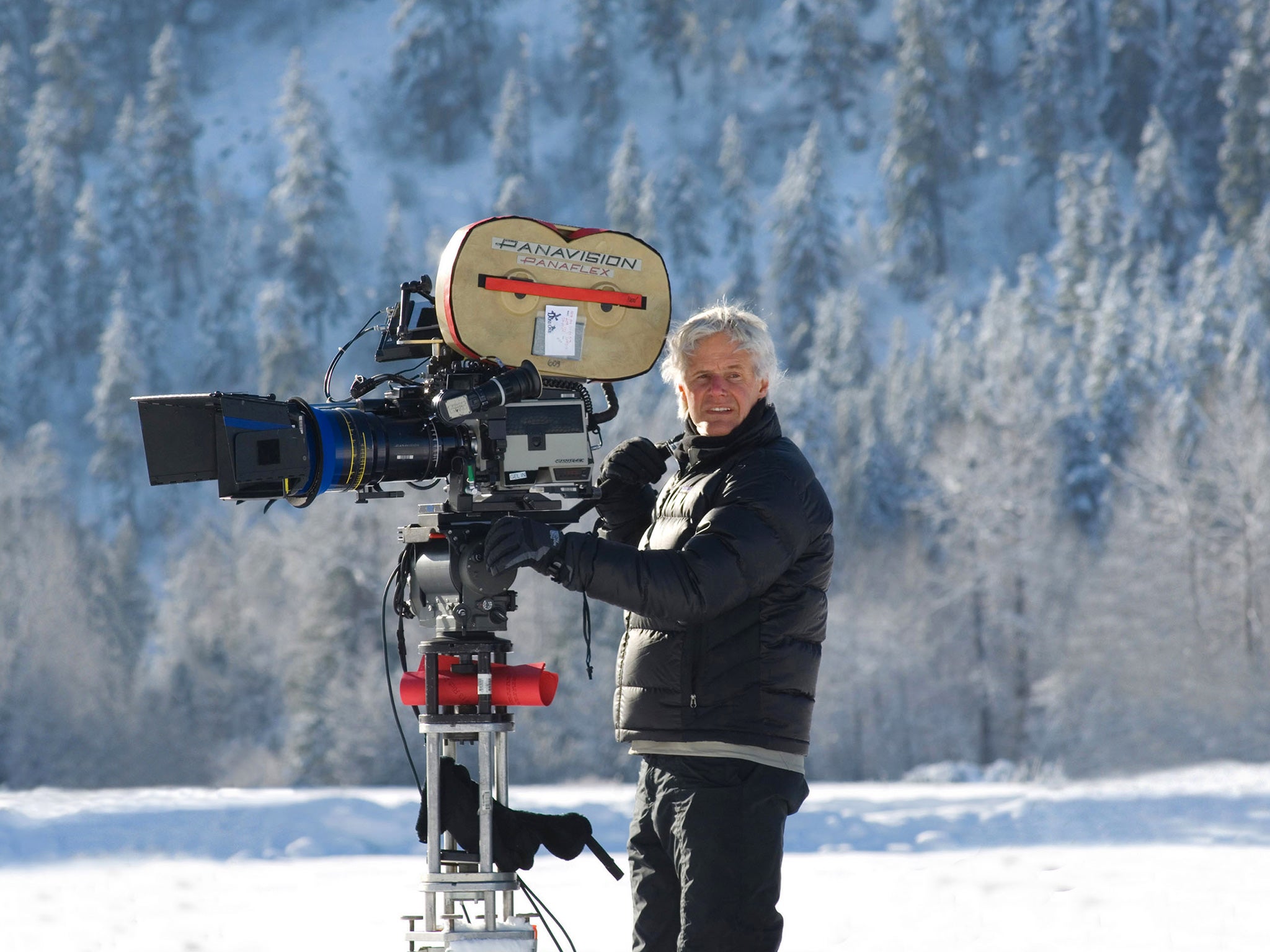How technology changed 'The X-Files,' on-screen and off, according to its creator; Q&A

Earlier this year, The X-Files got its chance at a reboot, with six new episodes filmed after fans campaigned to bring the show back. The new episodes were set 14 years after the series ended – mirroring the real world since the Fox series went off the air in 2002.
But a lot has changed since then. How should Agents Mulder and Scully adjust to a brave new world of smartphones, streaming video and social media? Series creator Chris Carter, who was in Washington last month as part of the Smithsonian's The Future is Here festival, took some time to chat about how changing technology has affected the X-Files franchise, on screen and off.
This interview has been condensed and edited for clarity.
Q. The X-Files got a reboot, in part, because of online fan campaigns to bring the show back. Can you talk about the Internet's impact on the revival?
A. There was always a strong movement to bring the show back; that drumbeat really is the reason we were asked to come back. There's a certain cynical point of view that we're just dusting off of an old intellectual property. But for 20th Century Fox, the actors, and me and other writing producers, this was a chance to tell new stories in a new context. The show as a storytelling engine is evergreen. I think there are lots and lots of X-Files stories to tell and to be told.
It never fails to surprise me when someone comes up to me and says “I'm a fan of the show,” and I know they either weren't born yet when the show premiered – or they were just kids. There's a whole generation of kids out there who've come to join the show. And I had to be mindful, first of all, that the show was coming back because of those hardcore fans. I didn't want to beat them over the head with things they already knew and were familiar to them, because they were the reason that we came back in the first place.

Q. Do you think the ability to stream shows has had an effect on that fan movement?
A. Without a doubt. The fact that you can stream this show – any time of day, from any platform, on mobile devices – broadens our audience. It's good for the viewer and for the producers. It's the future.
Q. Obviously, technology has changed quite a bit since X-Files was last on air. Has that had an influence on your storylines?
A. Emphatically yes. There was always emphasis on Mulder and Scully and their cellphones. Those were the lifelines between Mulder and Scully, but they were bricks in their hands. They weren't even texting when we went off the air in 2002.
One major thing is the fact that almost everything to do with Mulder's pursuit and his quest of government conspiracy – that all the attendant material is available with a keystroke – means that Mulder can sit at home in his underwear continuing his work. And we're more cognizant of hacking. There's a scene where Mulder is speaking to Scully, for example, and we see him re-affix a little piece of tape over the camera on his laptop.
Q. Nice touch – did you want to heavily address the current conversations about government surveillance in the show?
A. Yes. When we went off the air in 2002, it was in a political environment where we had basically placed all our faith in the government. We weren't interested in government conspiracies. Working 15 years later, that trend has reversed itself. It was ripe for telling these stories that were indicative of a whole new climate. We live in a Citizenfour world now. And the government has admitted spying on us. Really, the amazing thing to me is no one seems to put up much protest about that.
Q. How have technological changes affected The X-Files in the real world? Promotion, for example.
A. I was invited before we started making the show to a marketing meeting. I walked into a room, and there were about 50 people in the room. I joked that it takes fewer people on set to shoot a scene of a television show than were in that marketing meeting. A lot has to do with the fact that there are so many Internet mouths to feed. There's even a wing of the marketing team called “special ops” – and I'm not sure what they do. There's an approach to marketing now that is absolutely directed at modern, mobile and social media audiences.
Q. How about your relationship to the fans?
A. I feel closer to the fans even though I'm not a social media user, really. It's a new medium. We grew up with the Internet, and [X-Files was] really one of the first to have a presence online – in chat rooms, originally. This is brand new.
There's also something going on; I'll call it a metabolism effect. Things are consumed, digested and disposed of in quick fashion because there's so much media. It's more direct and immediate; it comes and goes in the blink of an eye.
Q. We often hear people who make shows or other media say that social media can be empowering for them. Do you agree with that?
A. It does empower, but it only empowers us to make a more direct and two-way connection. You do have to start thinking about how everything you say and do – and record – is possibly going to find its way into this other reality, which is the Internet reality. Knowing there's this new phenomenon of live-streaming video via Periscope, for example, puts what I do in a new light. You don't know if what you're doing is in a very public amphitheatre.
It can feel like you're constantly watching your back instead of focusing on the work. We went to film a scene on the street in Vancouver, and Gillian Anderson [Agent Scully] looked at me and said, “Did you have to choose this location?” It was so public. There were so many paparazzi there. We had to digitally edit them out of the frame.
And there's a worry that whatever you do will show up immediately on the Internet. One of the big cards I hold is the element of mystery and surprise. I have the opportunity to lose that now. I risk not doing my job as well.
Q. Did you have problems while filming with things like drones overhead, trying to get spoilers?
A. We were operating a drone on our own, with a permit, and there was another drone that parked near it illegally. That is something that we had to contend with. And we had a day where we were filming green screen shots in a limousine, and there was an aircraft loudly circling us and disrupting our shoot, disrupting our ability to do our work. You know, we have to deal with all kinds of unexpected phenomena.
© The Washington Post
Join our commenting forum
Join thought-provoking conversations, follow other Independent readers and see their replies
Comments
Bookmark popover
Removed from bookmarks